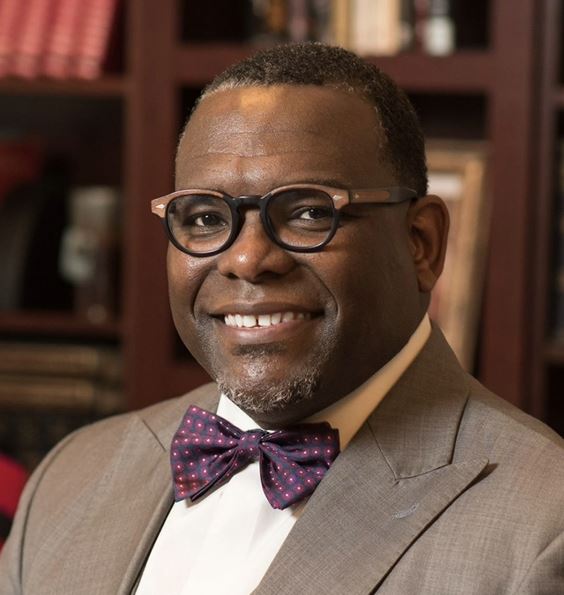Commentary on Genesis 50:15-21
Perhaps the two most often used words in today’s church are vision and destiny.
Throughout the body of Christ, the people of God are being challenged to cast greater vision and then walk in purposeful destiny. And there is much to be said about both. In fact, the Bible says, “Where there is no vision the people perish” (Proverbs 29:18, KJV). Therefore, it stands to reason that vision is a necessity for all facets of our lives—vision for our families, vision for our finances, vision for our faith. As it pertains to destiny, the Bible records that God has declared, “For I know the thoughts that I think toward you, saith the LORD, thoughts of peace, and not of evil, to give you an expected end” (Jeremiah 29:11, KJV). In other words, God has provided a planned and prepared purpose for all those God has called.
The issue I think we have created with both of these is that we have preached and taught them independent of one another. When it comes to vision and destiny, it is always either/or opposed to both/and. But I want to suggest that God never intended for us to view them as independent ideas, but rather as co-laborers working together. Vision is the vehicle that ultimately transports us to destiny, and that is a significant part of the story of Joseph.
Joseph is the main character of this particular pericope. One of the things that we know about him is that he was one whose life was built around a vision, or what the text specifically refers to as a dream. The Bible says that Joseph dreamed that he and his brothers were in the field binding sheaves and that the sheaves the brothers gathered assembled around the sheaves he gathered, and their sheaves began to bow down and worship his. His dream continued with other images of his brothers bowing to him; the sun, the moon, and the stars (brothers) paid him homage. Now, if you are going to dream, this is the kind of dream you want to have. This is the way to cast vision for yourself. It has all the right stuff. It speaks of prosperity, increase, abundance, authority, respect, and so on. However, Joseph soon learns that the dream or the vision is simply the vehicle; there is still the matter of arriving at the destiny.
There are a great many pages and verses between Joseph’s dream and this family reunion. Perhaps the easiest way to cover this much terrain is to say that whenever God gives you a dream and a destiny, there is always one other “d” to consider, and that is the “d” of drama. It is without question that Joseph experienced his fair share of drama from the pit, to the prison, to the palace. And it all began at the hands of his brothers who hurt him, but now find themselves in the awkward position of needing him.
When was the last time somebody hurt you? When was the last time you were treated in a way that was not appropriate for or reflective of the relationship you thought you had? In the vernacular of this more recent generation, when was the last time someone did you dirty? If I know life like I think I know life, then you probably will not have to think long or hard to come up with an answer. But beyond being able to remember, you can relate to how Joseph must have felt.
The interesting thing is that Joseph is now a man of position, power, and prestige. He has the wherewithal to get even, but the text presents a man who is not resentful, nor does he seek revenge. In fact, he is alright with extending them both a handout and a hand-up. This portion of the text teaches that in order to forgive and move on, you have to be at peace with the fact that those who hurt you may never reap what they have sown.
Scripture teaches that Joseph encounters his brothers on four separate occasions. They travel from Canaan to Egypt and go back to Canaan. This journey takes place four times (Genesis 42, 43, 45, and 46). But what is interesting is that it is only in Genesis 45 where Joseph confronts them with what they have done wrong, and it is only in that chapter that Joseph shows that it hurt him. Four times they meet, but only once does Joseph choose to share with them what they did and how much it hurt. When they return in Genesis 46, he does not bring it up. And when they come seeking forgiveness in Genesis 50, he does not speak of it in any negative way. This final family gathering offers us a real picture of forgiveness, because true forgiveness is only seen when you have to interact with the one who hurt you, when your paths will cross again.
There are some people who have hurt you that you will have to deal with again. She still attends church. He is still on the job. They still live under your roof. They will be at the next family reunion. You have to deal with them again. And what Joseph models for us is that when you have to deal with them again, you have to make a deliberate decision to not rewind, to not replay, and to not repay.
Joseph’s brothers are naturally worried about how Joseph will respond. But while they were worrying, Joseph was weeping, because Joseph had chosen to release them from their worry. How does he do it? How is it that Joseph is not resentful? How is it that Joseph does not look to get even? How is it that Joseph does not remind them of their offense? How is it that Joseph does not seek revenge? Simple—he remembers his story differently.
Contrary to how it is most often used, remember does not simply mean to stroll back down memory lane. Rather, to remember literally means to put something back together again. Joseph re-members his story differently. As he shares his story, he says, “I know you sold me into slavery. I know you thought you were harming me. But God used me to bring life to you. But God sent me to Pharaoh’s house. But God took me from the pit to the prison to the palace. But God was in control” (verses 19-20). So, as he re-members, he does not just remember what they did, but he also remembers what God did. Joseph understood there is a difference between a moment and a movement. Being thrown into a pit—a moment. Being sold into slavery—a moment. Being forsaken and forgotten—a moment. “Even though you intended to do harm to me, God intended it for good, in order to preserve a numerous people, as he is doing today”—a movement.


September 13, 2020